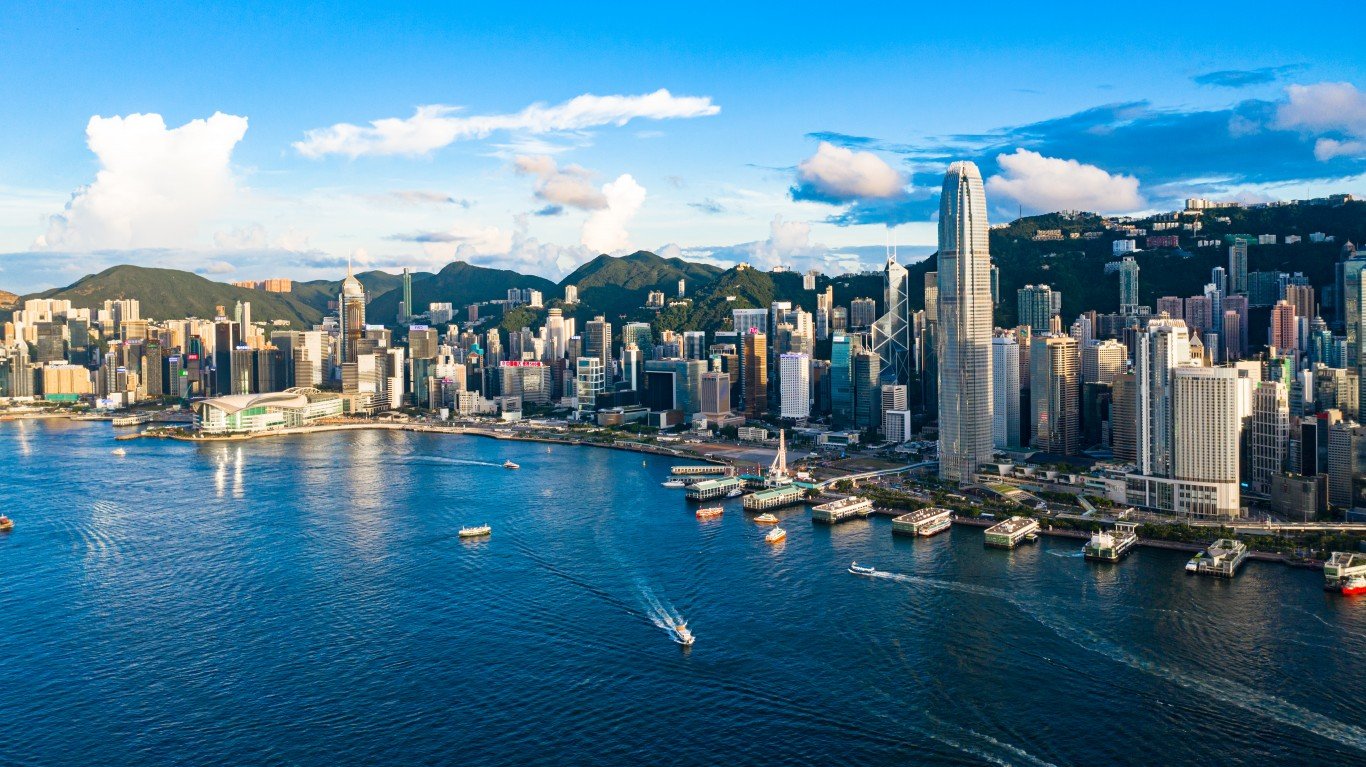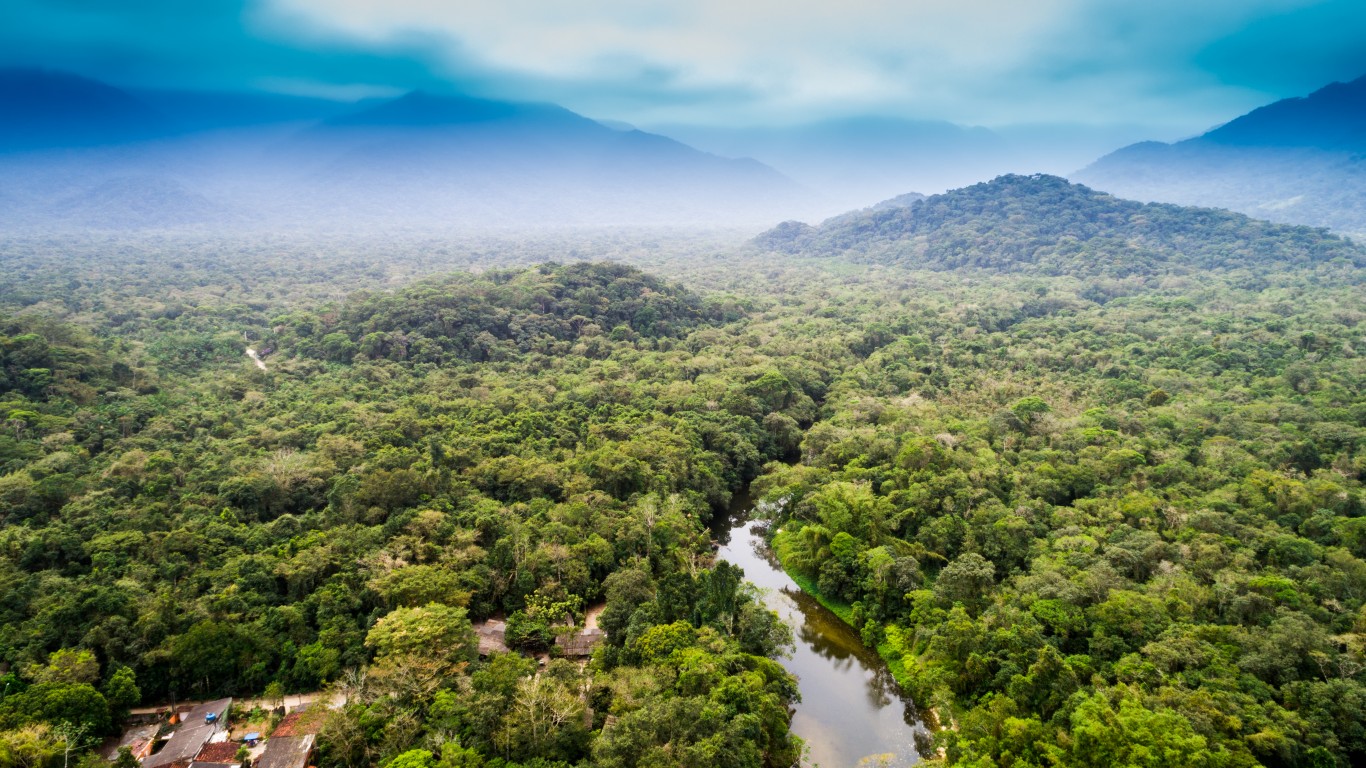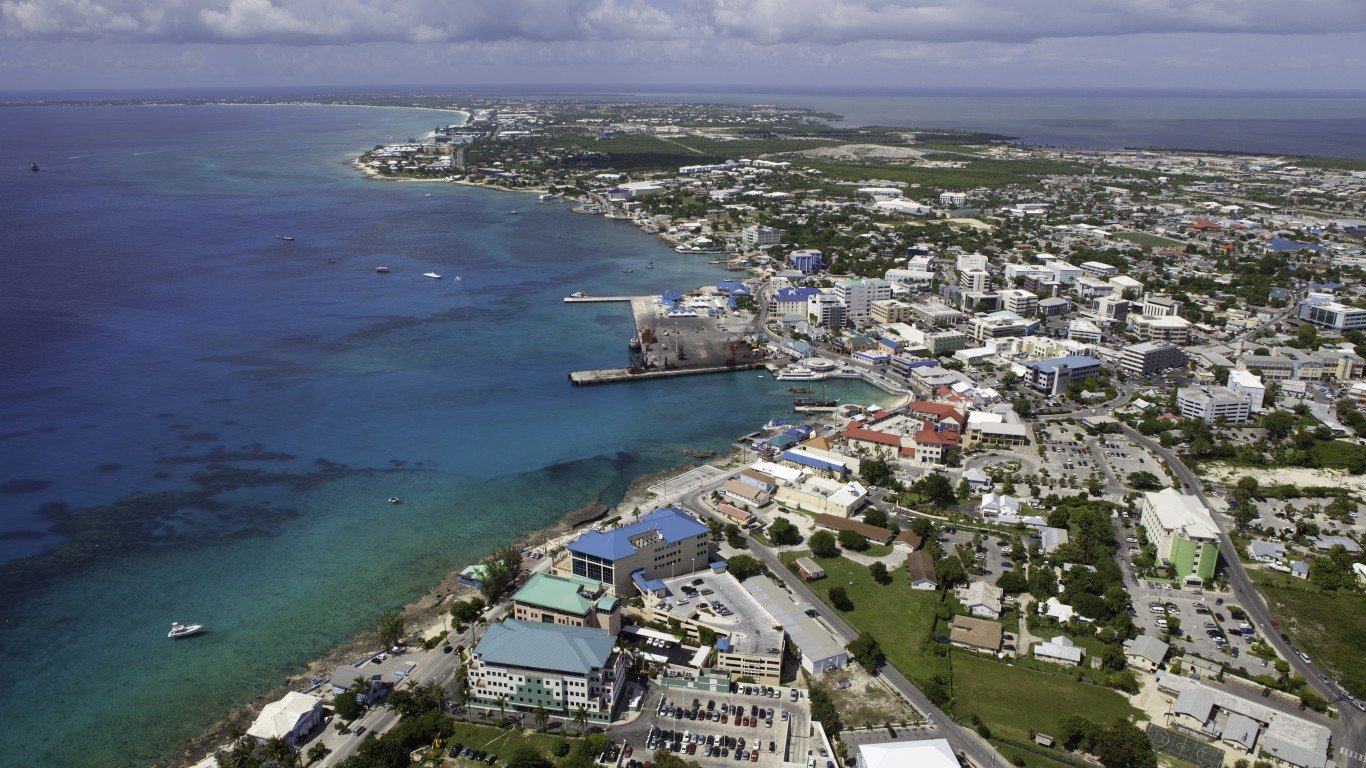
5. Hong Kong SAR, China
> Foreign direct investment as pct of GDP: 33.89%
> Foreign direct investment: $117,452.3 million — #4 highest of 195
> GDP: $346,585.9 million — #36 highest of 195
Hong Kong has long been a business-friendly destination for FDI, though there is some concern about the future of a favorable business environment as China exerts greater control over the day-to-day lives in Hong Kong. Finance, real estate, and insurance are major sectors of FDI.
The main investing nations are China, the British Virgin Islands, the United Kingdom, Bermuda, and Japan. Hong Kong’s advantages for FDI include access to the massive Chinese market, simple tax system, good infrastructure, and judicial security.

4. Congo, Rep.
> Foreign direct investment as pct of GDP: 39.42%
> Foreign direct investment: $4,015.5 million — #42 highest of 195
> GDP: $10,187.1 million — #54 lowest of 195
The African nation’s rich trove of oil, timber, and other natural resources has attracted FDI. The modernization of the transport passageway between the cities of Brazzaville and Pointe Noire will boost the nation’s importance in the region.
China, which has been raising its investment profile in Africa in recent years, is a major investor in the Republic of Congo, rebuilding the country’s port, road, rail, and electricity infrastructure. France and the United States also are investors in the African nation.

3. Luxembourg
> Foreign direct investment as pct of GDP: 84.72%
> Foreign direct investment: $62,144.6 million — #9 highest of 195
> GDP: $73,353.1 million — #69 highest of 195
Luxembourg is one of the most favorable tax havens in the world. More than 340 companies have set up subsidiaries in Luxembourg, seeking tax relief. Those companies include Amazon, Apple, AIG, Heinz, IKEA, Pepsi Bottling Group, and Staples.
Luxembourg emerged as a tax haven in the 1960s, when the European country became a locus for the off-shore trade of European bonds. Companies looking to issue debt come to Luxembourg because it does not have a withholding tax and does not require bond issuers to publish a prospectus.

2. Hungary
> Foreign direct investment as pct of GDP: 108.42%
> Foreign direct investment: $168,928.3 million — #3 highest of 195
> GDP: $155,808.4 million — #55 highest of 195
Hungary, located in central Europe, has attracted FDI inflows because of its location, infrastructure, skilled and inexpensive workforce. It also has one of Europe’s lower corporate tax rates. The main investors are Canada, the Cayman Islands, the Netherlands, and Germany.
FDI has been steered toward financial services, manufacturing, trade, and real estate. Foreign investors have raised concerns over the country’s shortage of qualified labor because of a decline in demographics.

1. Cayman Islands
> Foreign direct investment as pct of GDP: 422.44%
> Foreign direct investment: $23,621.0 million — #18 highest of 195
> GDP: $5,591.6 million — #44 lowest of 195
The offshore financial services sector is a major part of the economy of the Cayman Islands, one of the world’s most fully developed tax havens. No direct taxes are levied on domestic companies and residents in the Cayman Islands, and no levy is imposed on dividends, interests, gifts, and inheritance. There are no currency controls. Most of the government’s revenue is generated from indirect taxes. The Cayman Islands, located in the western Caribbean Sea, is politically stable and has a bustling tourism industry.






